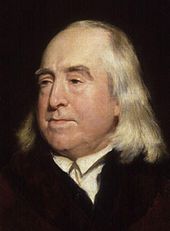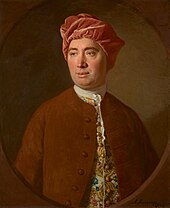Ethics, or "moral philosophy," is concerned primarily with the question of the best way to live, and secondarily, concerning the question of whether this question can be answered. The main branches of ethics are meta-ethics, normative ethics, and applied ethics. Meta-ethics concerns the nature of ethical thought, such as the origins of the words good and bad, and origins of other comparative words of various ethical systems, whether there are absolute ethical truths, and how such truths could be known. Normative ethics are more concerned with the questions of how one ought to act, and what the right course of action is. This is where most ethical theories are generated. Lastly, applied ethics go beyond theory and step into real world ethical practice, such as questions of whether or not abortion is correct. Ethics is also associated with the idea of morality, and the two are often interchangeable.
One debate that has commanded the attention of ethicists in the modern era has been betweenconsequentialism (actions are to be morally evaluated solely by their consequences) and deontology(actions are to be morally evaluated solely by consideration of agents' duties, the rights of those whom the action concerns, or both). Jeremy Bentham and John Stuart Mill are famous for promulgatingutilitarianism, which is the idea that the fundamental moral rule is to strive toward the "greatest happiness for the greatest number". However, in promoting this idea they also necessarily promoted the broader doctrine of consequentialism. Adopting a position opposed to consequentialism, Immanuel Kant argued that moral principles were simply products of reason. Kant believed that the incorporation of consequences into moral deliberation was a deep mistake, since it denies the necessity of practical maxims in governing the working of the will. According to Kant, reason requires that we conform our actions to the categorical imperative, which is an absolute duty. An important 20th-century deontologist, W.D. Ross, argued for weaker forms of duties called prima facie duties.
More recent works have emphasized the role of character in ethics, a movement known as the aretaic turn (that is, the turn towards virtues). One strain of this movement followed the work of Bernard Williams. Williams noted that rigid forms of consequentialism and deontology demanded that people behave impartially. This, Williams argued, requires that people abandon their personal projects, and hence their personal integrity, in order to be considered moral. G.E.M. Anscombe, in an influential paper, "Modern Moral Philosophy" (1958), revived virtue ethics as an alternative to what was seen as the entrenched positions of Kantianism and consequentialism. Aretaic perspectives have been inspired in part by research of ancient conceptions of virtue. For example, Aristotle's ethics demands that people follow the Aristotelian mean, or balance between two vices; and Confucian ethics argues that virtue consists largely in striving for harmony with other people. Virtue ethics in general has since gained many adherents, and has been defended by such philosophers as Philippa Foot, Alasdair MacIntyre, and Rosalind Hursthouse.
Political philosophy is the study of government and the relationship of individuals (or families and clans) to communities including the state. It includes questions about justice, law, property, and the rights and obligations of the citizen. Politics and ethics are traditionally inter-linked subjects, as both discuss the question of what is good and how people should live. From ancient times, and well beyond them, the roots of justification for political authority were inescapably tied to outlooks on human nature. In The Republic, Plato presented the argument that the ideal society would be run by a council of philosopher-kings, since those best at philosophy are best able to realize the good. Even Plato, however, required philosophers to make their way in the world for many years before beginning their rule at the age of fifty.
For Aristotle, humans are political animals (i.e. social animals), and governments are set up to pursue good for the community. Aristotle reasoned that, since the state (polis) was the highest form of community, it has the purpose of pursuing the highest good. Aristotle viewed political power as the result of natural inequalities in skill and virtue. Because of these differences, he favored an aristocracy of the able and virtuous. For Aristotle, the person cannot be complete unless he or she lives in a community. His The Nicomachean Ethics and The Politics are meant to be read in that order. The first book addresses virtues (or "excellences") in the person as a citizen; the second addresses the proper form of government to ensure that citizens will be virtuous, and therefore complete. Both books deal with the essential role of justice in civic life.
Nicolas of Cusa rekindled Platonic thought in the early 15th century. He promoted democracy in Medieval Europe, both in his writings and in his organization of the Council of Florence. Unlike Aristotle and the Hobbesian tradition to follow, Cusa saw human beings as equal and divine (that is, made in God's image), so democracy would be the only just form of government. Cusa's views are credited by some as sparking the Italian Renaissance, which gave rise to the notion of "Nation-States".
Later, Niccolò Machiavelli rejected the views of Aristotle and Thomas Aquinas as unrealistic. The ideal sovereign is not the embodiment of the moral virtues; rather the sovereign does whatever is successful and necessary, rather than what is morally praiseworthy. Thomas Hobbes also contested many elements of Aristotle's views. For Hobbes, human nature is essentially anti-social: people are essentially egoistic, and this egoism makes life difficult in the natural state of things. Moreover, Hobbes argued, though people may have natural inequalities, these are trivial, since no particular talents or virtues that people may have will make them safe from harm inflicted by others. For these reasons, Hobbes concluded that the state arises from a common agreement to raise the community out of the state of nature. This can only be done by the establishment of asovereign, in which (or whom) is vested complete control over the community, and is able to inspire awe and terror in its subjects.[21]
Many in the Enlightenment were unsatisfied with existing doctrines in political philosophy, which seemed to marginalize or neglect the possibility of a democratic state. Jean-Jacques Rousseau was among those who attempted to overturn these doctrines: he responded to Hobbes by claiming that a human is by nature a kind of "noble savage", and that society and social contracts corrupt this nature. Another critic was John Locke. In Second Treatise on Government he agreed with Hobbes that the nation-state was an efficient tool for raising humanity out of a deplorable state, but he argued that the sovereign might become an abominable institution compared to the relatively benign unmodulated state of nature.
Following the doctrine of the fact-value distinction, due in part to the influence of David Hume and his student Adam Smith, appeals to human nature for political justification were weakened. Nevertheless, many political philosophers, especially moral realists, still make use of some essential human nature as a basis for their arguments.
Marxism is derived from the work of Karl Marx and Friedrich Engels. Their idea that capitalism is based on exploitation of workers and causes alienation of people from their human nature, the historical materialism, their view of social classes, etc., have influenced many fields of study, such as sociology, economics, and politics. Marxism inspired the Marxist school of communism, which brought a huge impact on the history of the 20th century.
Aesthetics
Aesthetics deals with beauty, art, enjoyment, sensory-emotional values, perception, and matters of taste and sentiment. It is a branch of philosophy dealing with the nature of art,beauty, and taste, with the creation and appreciation of beauty. It is more scientifically defined as the study of sensory or sensori-emotional values, sometimes calledjudgments of sentiment and taste.[25] More broadly, scholars in the field define aesthetics as "critical reflection on art, culture and nature."
More specific aesthetic theory, often with practical implications, relating to a particular branch of the arts is divided into areas of aesthetics such as art theory, literary theory, film theory and music theory. An example from art theory is aesthetic theory as a set of principles underlying the work of a particular artist or artistic movement: such as the Cubistaesthetic.[28]














0 Comments:
Post a Comment